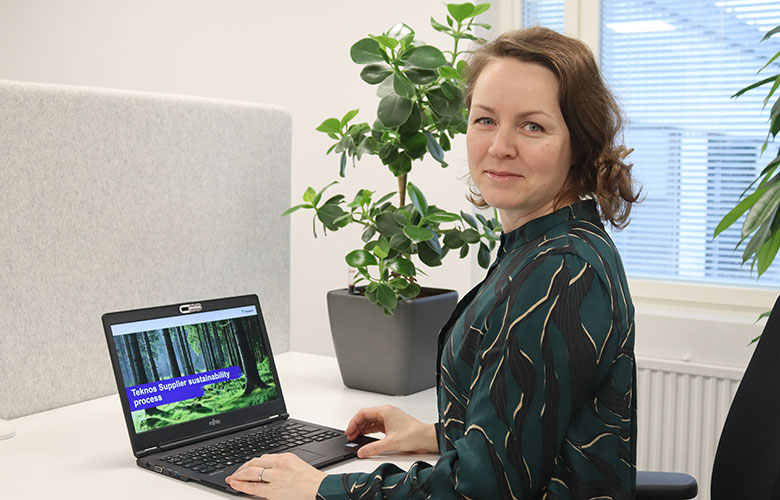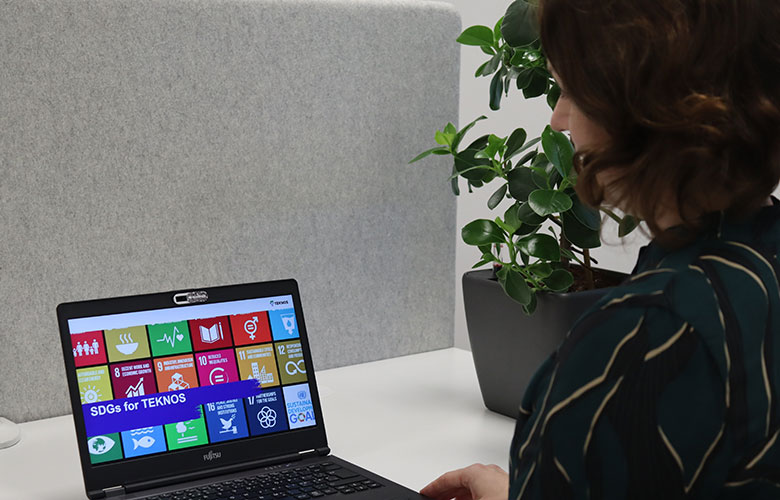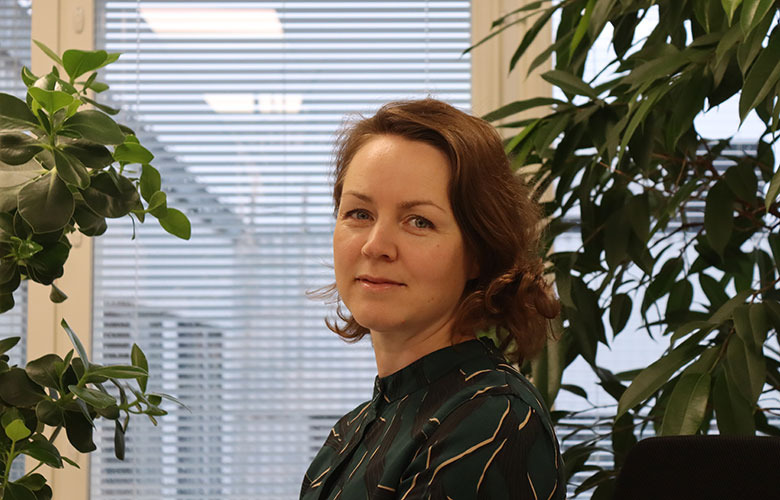Data, foresight, and cooperation are emphasized in the work of a procurement manager: “A company can only be as sustainable as its supply chain”
Procurement is the foundation of a sustainable company. Procurement function identifies, monitors, and minimises negative environmental and social impacts of supply chain while ensuring that economic conditions and high-quality requirements are met. Satu Rauhala, Procurement Manager at coating manufacturer Teknos, develops the sustainable procurement practices of the company.
“I started my Teknos career in 2000 as a summer worker at a Teknos laboratory in Finland. After graduating with a master’s degree in chemical engineering in 2006, I worked at Teknos first as a process engineer and then for almost ten years as a product development chemist. I started at Teknos Group’s procurement function in 2016,” Satu tells.
Satu is responsible for Teknos Group’s direct procurement of certain raw material categories and developing sustainable procurement practices.
“Direct procurement includes everything that is used to manufacture products, in other words, everything that goes into a paint can. In addition, I lead the development of our sustainable procurement, which is my special area of interest,” says Satu.
Sustainable procurement utilizes data
At Teknos, the management of sustainable procurement is built on three pillars: collection and utilization of data, implementation of corrective actions and the development of procurement function.
“Our procurement team collects data from our supply chain, which allows us to identify risks, areas for improvement and successes. We collect data from our suppliers with, for example, EcoVadis assessment tool and audits. To ensure data even from our smaller suppliers who may not be able to conduct EcoVadis assessment, we have developed a self-assessment tool,” Satu explains.
“With the help of data, we are able to identify and address possible issues and also reward those suppliers that are already at a good level. In addition to this, we implement development projects, also in cooperation with our suppliers with the aim of further developing our procurement function and even innovate new practices,” says Satu.
In the field of sustainable procurement, Teknos aims that 95 percent of its suppliers have signed the Code of Conduct for Teknos suppliers and 80 percent of suppliers have been evaluated with the EcoVadis tool by 2025. Sustainable procurement has been developed systematically, especially during the last three years, and in these years Teknos achieved the annual goals set for sustainable procurement.
“Our procurement practices have developed rapidly in the recent years. For example, we have brought new tools, processes, metrics, and evaluations to our supplier management. Sustainable procurement plays a very important role in the company’s sustainability work. I believe, that a company can only be as sustainable as its supply chain is,” Satu states.

Changes in the operating environment affect supply chains
Risk management is also crucial to Teknos Group’s procurement. Recently, risks have been related particularly to the availability of raw materials. Resource scarcity is a global challenge that has affected different industries lately. In the coatings industry, the increases in the demand during the COVID-19 pandemic and challenges related to logistics chains have affected the availability of raw materials.
As one paint might consist of dozens of chemical components, Teknos Group’s procurement network includes hundreds of suppliers from large international companies to small local companies. Thus, the raw material chains are very global and easily affected by changes in the operating environment.
“In procurement we can often immediately notice what is happening on the other side of the world. For example, weather conditions or accidents on the other side of the globe can affect supply chains and the availability of raw materials. From the procurement point of view, the world looks quite small,” Satu describes.
Proactive risk management is an important part of the work of Teknos Group’s Procurement Manager.
“We strive to manage risks so that potential challenges affect our customers as little as possible. For example, we have responded to the challenges related to the availability of raw materials by strengthening our internal cross-functional teams, further increasing cooperation with our suppliers, and by diversifying our procurement to avoid longer delivery times,” Satu continues.

Sustainable procurement is developed in cooperation with stakeholders
Active interaction between the various actors in the supply chain plays a key role in developing sustainable procurement.
“We have really sustainable suppliers in our supply chain; the average EcoVadis score of our suppliers is about 60/100, which is a great result. We also learn from our suppliers about the best practices and implement joint development projects. In addition, the work is all about communication, negotiations, and discussions with suppliers,” says Satu.
“Developing sustainable procurement is an ongoing, constantly evolving process. Progress is based on transparency and willingness to receive development ideas from both sides. The wider sustainable practices spread, the more sustainably we all can function,” Satu concludes.
More information:
Satu Rauhala, Procurement Manager, Teknos Group
tel. +358468510991
email: satu.rauhala[@]teknos.com

“We strive to manage risks so that potential challenges affect our customers as little as possible. For example, we have responded to the challenges related to the availability of raw materials by strengthening our internal cross-functional teams, further increasing cooperation with our suppliers, and by diversifying our procurement to avoid longer delivery times.”
Satu Rauhala, Procurement Manager at Teknos Group